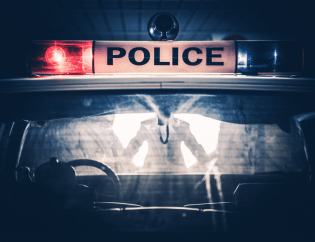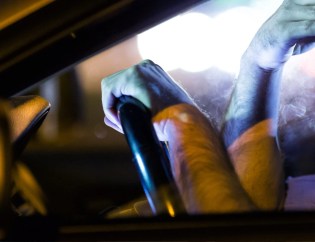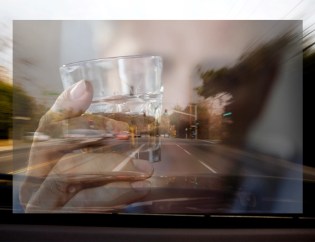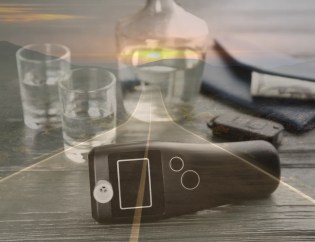
When you see flashing lights in your rearview mirror, your heart likely starts to pound. If you’ve had anything to drink, that anxiety can turn into outright fear. In Texas, the terms DWI and DUI are often used interchangeably in casual conversation, but they represent distinct legal offenses with different consequences. Understanding the nuances between them is crucial, as a charge for either can have a significant impact on your life.
This guide will break down the key differences between DWI (Driving While Intoxicated) and DUI (Driving Under the Influence) and possible penalties under Texas law. We will explore the legal definitions, the penalties you could face, and common misunderstandings surrounding these charges. Knowing your rights and the specifics of the law is the first step in building a strong defense.
What is a DWI in Texas?
In Texas, the primary charge for intoxicated driving is DWI, or Driving While Intoxicated. This offense is not limited to alcohol. You can be charged with a DWI if you operate a motor vehicle in a public place while intoxicated from alcohol, a controlled substance, a drug, or any combination of these.
Legal Definition of Intoxication In Texas
The Texas Penal Code defines "intoxicated" in two ways:
Loss of Faculties: You no longer have the normal use of your mental or physical faculties due to the introduction of alcohol, a drug, or a combination of substances into your body.
Blood Alcohol Concentration (BAC): You have a blood, breath, or urine alcohol concentration of 0.08% or higher.
This dual definition is important. It means a police officer can arrest you for DWI based on their observations of your driving, your performance on field sobriety tests, or your physical appearance, even if your BAC is below the legal limit. Conversely, a BAC of 0.08% or more is considered per se intoxication, meaning you are legally intoxicated regardless of how well you believe you can handle your alcohol.
Penalties for a DWI in Texas
The consequences of a DWI conviction in Texas are severe and escalate with each subsequent offense. An experienced Abilene DWI attorney can help you navigate the complexities of these penalties.
First Offense DWI
- Classification: Class B Misdemeanor.
- Jail Time: A mandatory minimum of 72 hours, up to 180 days.
- Fines: Up to $2,000.
- License Suspension: From 90 days up to one year.
- Annual Surcharge: Up to $2,000 per year for three years to maintain your driver's license.
Second Offense DWI
- Classification: Class A Misdemeanor.
- Jail Time: From 30 days up to one year.
- Fines: Up to $4,000.
- License Suspension: From 180 days up to two years.
- Third (or More) Offense DWI
- Classification: Third-Degree Felony.
- Prison Time: From two to ten years in state prison.
- Fines: Up to $10,000.
- License Suspension: From 180 days up to two years.
Other factors, such as having a child passenger under 15 in the vehicle (a state jail felony) or causing an accident that results in serious injury or death, can dramatically increase these penalties.
What is a DUI in Texas?
While adults are charged with DWI, the term DUI, or Driving Under the Influence, is reserved exclusively for minors in Texas. A minor (under the age of 21) can be charged with a DUI if they operate a motor vehicle in a public place with any detectable amount of alcohol in their system.
Zero-Tolerance for Minors
Texas has a strict zero-tolerance policy for underage drinking and driving. The legal standard for a minor is not the 0.08% BAC that applies to adults. Any trace of alcohol found through a breath or blood test can lead to a DUI charge. This reflects the state's position that individuals under the legal drinking age should not be consuming alcohol at all, let alone driving after doing so.
Penalties for a DUI in Texas
Penalties for a minor charged with a DUI are focused more on education and rehabilitation, but they are still serious.
First Offense DUI
- Classification: Class C Misdemeanor.
- Fines: Up to $500.
- License Suspension: 60 days.
- Community Service: 20 to 40 hours.
- Alcohol Awareness Course: Mandatory attendance for the minor and sometimes a parent.
It is important to note that if a minor's BAC is 0.08% or higher, they can be charged with an adult DWI, which carries the much harsher penalties outlined earlier.
Common Misconceptions DWI vs DUI
There are several myths about Texas DWI laws that can cause confusion.
Myth 1: You can only get a DWI for alcohol.
Fact: DWI applies to intoxication from alcohol, illegal drugs, prescription medication, or any substance that impairs your ability to drive safely.
Myth 2: If you pass a breathalyzer, you can't be charged.
Fact: If a police officer believes you have lost the normal use of your faculties, they can still arrest you for DWI, even with a BAC under 0.08%.
Myth 3: Refusing a breathalyzer means you can't be convicted.
Fact: Refusing a chemical test triggers an automatic driver's license suspension under implied consent laws. Prosecutors can also use your refusal as evidence of guilt in court.
Why You Need an Abilene DWI Attorney
Facing a DWI or DUI charge in Texas can be an overwhelming and frightening experience. The legal system is complex, and the stakes are incredibly high. A conviction can follow you for the rest of your life, affecting your employment, your ability to drive, and your personal freedom.
An experienced DWI lawyer can be your greatest asset. At the Blizzard and Zimmerman Law Firm, Jacob Blizzard understands the intricacies of Texas DUI laws and has a proven track record of defending clients in Abilene and throughout the Big Country. We will meticulously review every piece of evidence in your case, from the initial traffic stop and field sobriety tests to the administration and results of chemical tests.
Our goal is to protect your rights and fight for the best possible outcome. This could mean challenging the legality of the stop, questioning the accuracy of a breathalyzer, or negotiating for a reduced charge or alternative sentencing.
Don't Face These Charges Alone
If you or a loved one has been arrested for a DWI or DUI, it is critical to act quickly. You have a limited time to request a hearing to save your driver's license, and the sooner you have a skilled legal advocate on your side, the better your chances of a successful defense.
Contact Jacob Blizzard, a dedicated Abilene DWI attorney, for a confidential consultation today at (325) 326-5962. Let us help you navigate this difficult time and work to protect your future.











